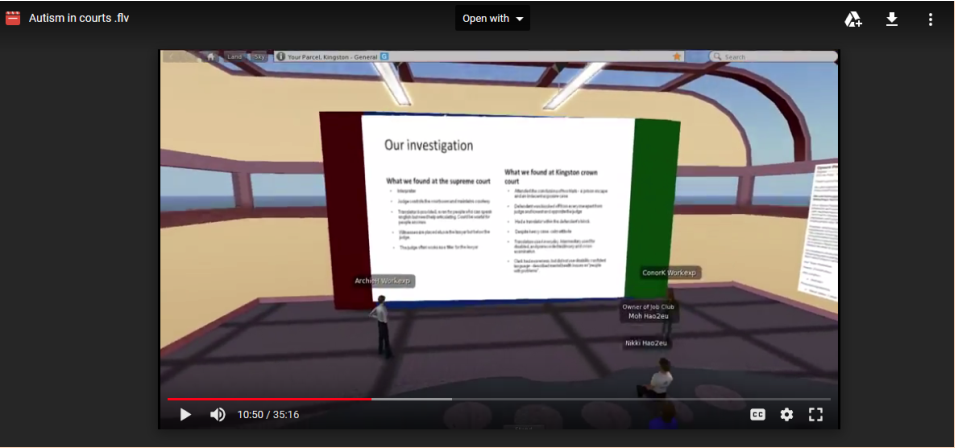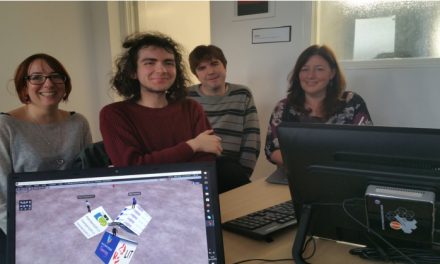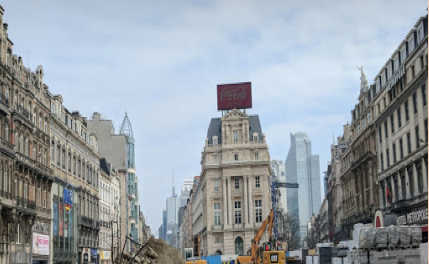Using virtual reality to enable young people to collaboratively research and share learning about how UK legal systems support people with autism
The work experience I took part in involved the investigation of how our country’s legal system engaged and supported people with autism, the measures they took in potentially hazardous situations and the technology they used most often to maintain an equal and efficient judicial process. I was able to interview a judge directly at my local court, and investigate the Crown Court itself in London. Through experience my partner and I develop a wide understanding of the vital requirements of a courtroom environment, discovering how stressful such an intense situation can be, but also seeing what methods the lawyers, judges and clients employed to counteract the natural pressure. The court cases we sat in on gave us many insights into these methods, from the moderating influence of the judge, cutting off lines of enquiry deemed unnecessarily aggressive of provocative, to the employment of interpreters for people with different types of communication issues and the use of video calls to circumvent everything from inconvenient location differences to potentially harmful effects on traumatised victims if their attacker was physically present. It was impressive to see how the government has managed to continuously move forward in preventing a wider and wider range of potential hazards. Finally, my partner and I were able to make use of the functions of the virtual world provide to us to present to our senior group the results of our findings in a manner that felt physical and interactive despite the vast spatial difference between us. Being able to cooperate with my partner via technology was essential for organising and developing both our research and said presentation. It was definitely a very valuable experience and could be something young people in Greece and Ireland could also do using virtual youth town.





